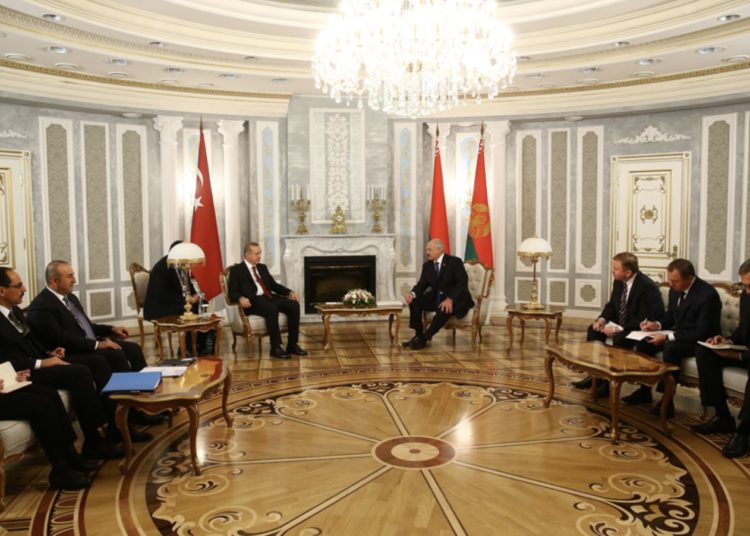Abdullah Bozkurt
A nuclear power agreement between Turkey and Belarus has been criticized for including open-ended terms that are subject to broad interpretation and abuse of power, Nordic Monitor has learned.
According to the terms of the agreement, a copy of which was obtained by Nordic Monitor, a sweeping mandate to expand the agreement at will was included in the deal at the request of the government of President Recep Tayyip Erdoğan. The controversial clause was added to section L of Article 3, which lists “other fields of cooperation as may be mutually agreed upon by the Parties” when enumerating the specific areas of nuclear cooperation between Turkey and Belarus.
The Turkish opposition challenged the clause on the grounds that the wording is vague and gives a broader mandate to the government to expand nuclear cooperation schemes beyond the intent and the scope of the agreement. It also allows the government to bypass legislative review to make changes to the agreement as it sees fit after it is ratified by parliament.
A similar loophole was also inserted in Article 4, which describes the various forms of cooperation. Section G of the article states that the government can add “other forms of cooperation as may be agreed upon by the Parties.”
Furthermore, the way the agreement, officially titled “Cooperation in the Area of the Use of Nuclear Energy for Peaceful Purposes,” was signed in Minsk on November 11, 2016 was unusual as well. The person signing for Turkey was Orhan Erdem, the deputy minister of education whose portfolio had nothing to do with nuclear energy.

When the agreement was signed in Minsk, a huge delegation including ministers and senior government officials led by Erdoğan met with their Belarusian counterparts. Under normal circumstances, such an agreement should have signed by an official from the Ministry of Energy, In the event no such official is present during the signing ceremony, standard operating procedure requires that an official from the Foreign Ministry on behalf of the Energy Ministry should sign. In this nuclear deal, none of these procedures were followed.
Furthermore, when Erdoğan submitted the agreement to parliament on March 15, 2019, the deal was taken up by the Foreign Affairs Commission on May 22, 2019 as opposed to the Commission for Industry, Trade, Energy, Natural Resources, Information and Technology, which has more competence to review the terms of the agreement. The Turkish president wanted to fast track the agreement without much hassle through the Foreign Affairs Commission chaired by his confidant, Volkan Bozkır. It took only a few minutes to debate the deal before it was passed by the commission.
Both Turkey and Belarus have committed themselves to cooperate in the research and development of nuclear energy and advanced nuclear reactors, radioactive waste management, production of isotopes, training and education. The two sides will establish joint working groups to study nuclear energy-related issues, exchange scientific and technical personnel and cooperate in the transfer of nuclear materials.


Another indication the agreement was rushed emerged after the deal was signed by the Turkish and Belarusian officials. The mistakes that were made in the text had to be corrected through an exchange of diplomatic notes between the Turkish Embassy and the Belarus Foreign Ministry. It turned out Leonid Shenets, first deputy minister of the Belarus energy ministry, signed the English version of the agreement on behalf of Turkey. The wrong country designation next to the Belarus official’s signature was later corrected after an exchange of letters. In all versions of the text, the subsections of Article 1 were incorrectly labeled, also subsequently corrected at the request of the Belarusian Foreign Ministry.
The agreement is valid for 10 years with an automatic extension of five years.












